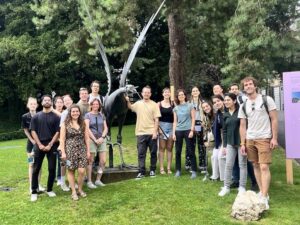“Biocatalysis, the use of enzymes to produce chemicals, offers numerous advantages over traditional organic chemistry. The most important ones are the excellent regio-, chemo-, and stereoselectivities that can be achieved, the high functional group tolerance, and the fact that biocatalytic transformations can usually be carried out in pure water. In this work, we have applied a semipurified aminopeptidase from Aspergillus oryzae (LAP2) for the chiral resolution of racemic piperazine-2-carboxamide into enantiopure (S)-piperazine-2-carboxylic acid. After characterizing the free enzyme, we also achieved its first immobilization at high loadings (>20 mgprotein/gsupport) by testing different commercially available methacrylic resins. The immobilized catalyst showed 48−67% of retained activity and could be reused for more than 10 cycles in batch without any apparent loss of activity. Moreover, we also integrated the immobilized enzyme into continuous flow mode, which led to a significant increase in productivity and allowed continuous operation for more than 24 h without affecting the reaction yield.”
A great collaboration between Roche and our group, specially with the key contribution of David now at inSEIT continuing to develop tailored immobilisation strategies for all kind of enzymes.
Read the full article here
